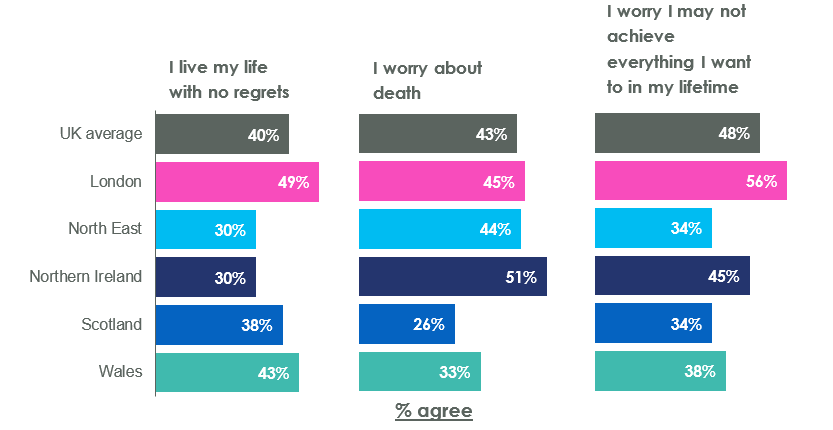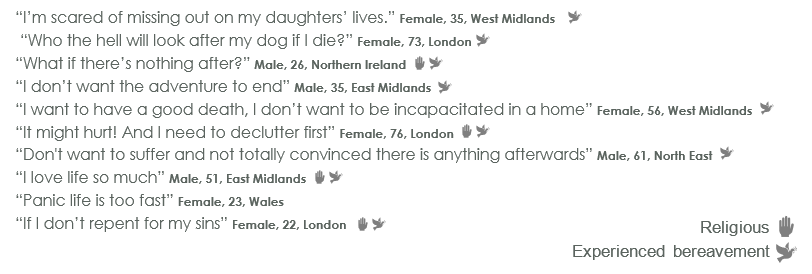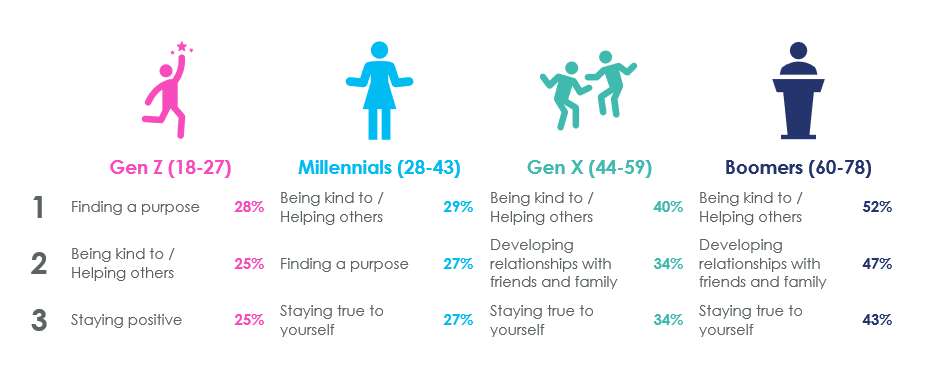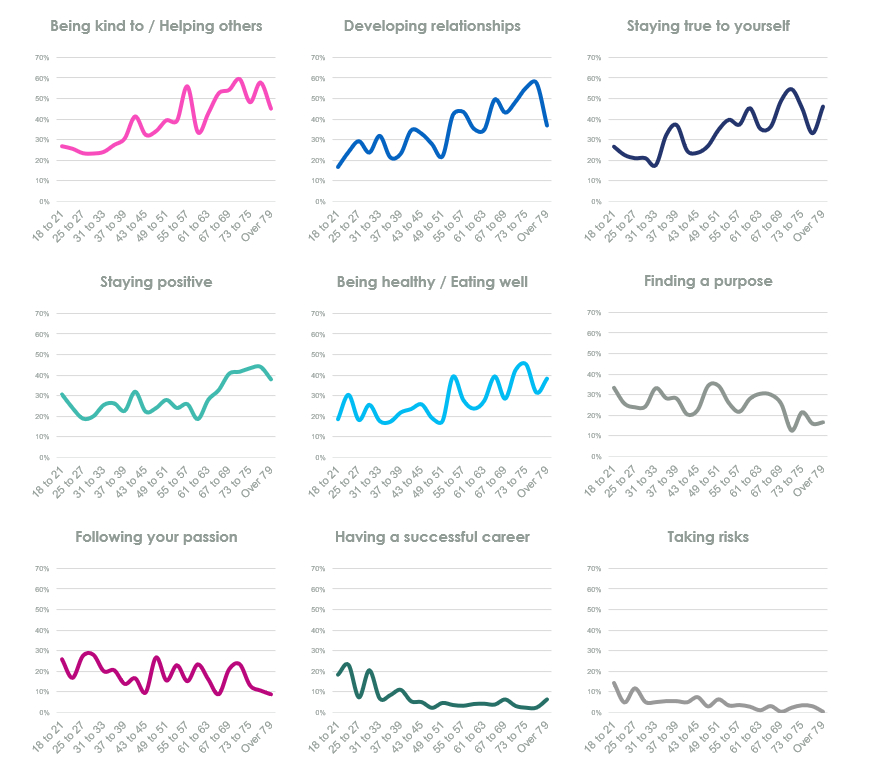UK attitudes towards death

Discussing death
7 in 10 Brits think that death is a subject that should be discussed openly…
Unsurprisingly, young people were less inclined to discuss the subject with only 62% agreeing it should be discussed openly compared with 72% of 35 to 54 year olds, and 76% of over 55s. Those who had experienced bereavement in the past 10 years were even more likely to agree with 78% thinking it should be discussed openly compared with 51% of those who had never experienced bereavement.
…so why is nobody doing it?
With 71% of UK adults thinking death should be discussed openly and a quarter thinking about dying at least once a week, it is interesting that only 1 in 10 (9%) are voicing their thoughts about the subject with others weekly. Perhaps it’s because nearly half (44%) of Brits feel uncomfortable thinking about their own death with 4 in 10 men (40%) and 5 in 10 women (48%) feeling this way. A similar amount of Brits (43%) worry about death, yet it is women again who prove more concerned with half of all females (50%) worrying about death compared to only a third males (34%).
Outlooks on life and death
Looking at key statements on life and death, there also appear some clear regional disparities. Whilst Londoners may claim to be more carefree with half saying they live their life with no regrets, they worry more about death than those in Scotland and Wales and over half worry they may not achieve everything they want to in their lifetime. Meanwhile, those in Northern Ireland worry more about death and are much less regret-free than Londoners.

The end of an adventure
When those who worry about death were asked to elaborate on their concerns, key themes emerged including: the impact on loved ones (including pets); entering into the uncertainty and unknown of death; current and potential health issues; existential anxiety; and religious concerns about judgement.

For those not worried about death, there was common sentiment that death is an inevitability meaning we should focus on the present rather than worrying about an uncertain future. Some respondents also expressed a feeling of indifference towards the subject as it is a natural part of the human life cycle.
Compassion, loved ones, and being authentic are the keys to a meaningful life
These concerns, namely the impact on loved ones and existential thoughts, filtered into what UK adults consider important to a meaningful life. Almost 4 in 10 Brits see being kind to/helping others most important, followed by a third saying developing relationships with loved ones and staying true to yourself. Least important was taking risks – only 1 in 20 Brits view this as a factor of a meaningful life.

There are some significant age variations however. For Gen Z finding a purpose is most important to a meaningful life, hardly surprising when these are the years when most people are finding their feet in the world and trying to figure out their life course. For all other generations being kind to others/helping others is most important, it is second most important for Gen Z. What we consider important and meaningful converges significantly as we age. Over half of all Boomers (52%) say being kind to others/helping others is most important to a meaningful life compared with only a quarter of Gen Z.

Additionally, nearly 1 in 5 (17%) of Gen Z consider having a successful career key to a meaningful life compared with only 1 in 10 (10%) of Millennials and 1 in 20 Gen X and Boomers (both 4%). The overall lifetime trajectory of some of these meaningful life factors is shown below:





